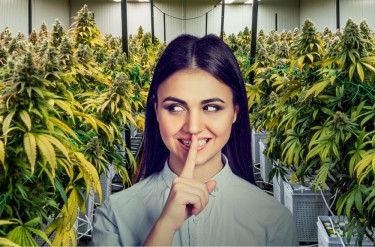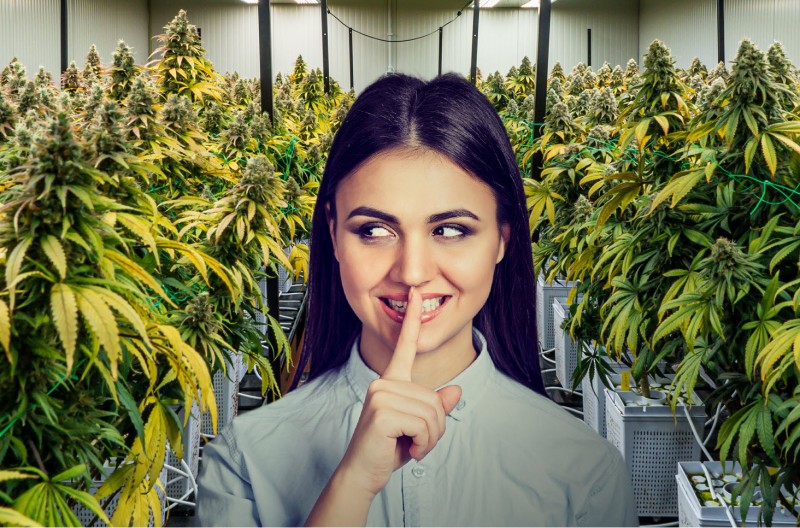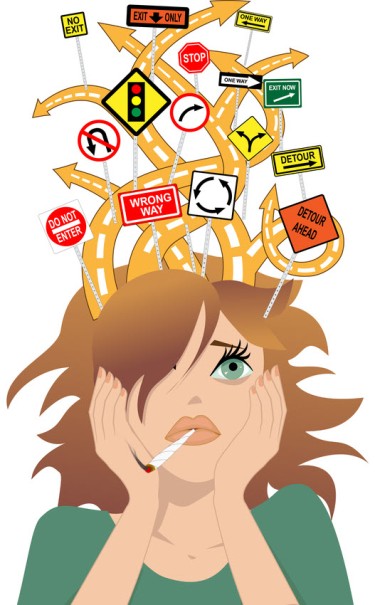
You may remember that Justin Timberlake once said, "Some people are just better on weed". Well, if he was referring to people with ADHD or ADD, he may be right. While many studies on marijuana for ADD or ADHD show great results to help people with "scatter" brain start to focus, UFC Sean O'Malley is the latest person to preach the plants' benefits for focus.
Bantamweight champion Sean O'Malley breaks the stereotype associated with marijuana users. At 29, he incorporates marijuana into his training regimen to achieve a state of intense focus, which appears to yield positive results.
In an interview with Demetrious Johnson, O'Malley clarified misconceptions about his marijuana use: "Contrary to popular belief, I don't consume as much as people assume." Asserting his professionalism as an athlete, he claims to excel in managing his recovery compared to others in the UFC, attributing it to his disciplined habits and routines.
Recognizing the potential drawbacks of smoking on lung health and conditioning, O'Malley adopts measures to safeguard his fitness standards. He opts for vaporizing marijuana, particularly during training camps, using a high-quality vaporizer once daily instead of traditional methods like joints, bongs, pipes, or dabbing.
O'Malley reveals that during specific training sessions, such as longer, lower-intensity workouts lasting up to 60 minutes, he trains while under the influence, leveraging marijuana to enhance his focus. However, he acknowledges the importance of using it as a tool responsibly, cautioning against falling into unproductive habits like aimlessly watching YouTube while high.
The upcoming UFC 299 main event on March 9 sees O'Malley defending his 135-pound championship title for the first time against his rival, Marlon "Chito" Vera. Seeking redemption for his only career loss, which Vera inflicted upon him at UFC 252 in August 2020, O'Malley is determined to emerge victorious.
The Science Behind O'Malley's Approach
Sean O'Malley's use of cannabis to increase concentration during training begs interesting concerns concerning the relationship between marijuana use and athletics. Cannabis includes chemicals like THC and CBD that interact with the brain's endocannabinoid system to influence a variety of physiological activities, despite being frequently linked to relaxation and altered perception.
Studies suggest that low to moderate doses of THC may improve focus, creativity, and cognitive performance in some individuals, potentially explaining O'Malley's reported ability to "hyper-focus" during workouts. Additionally, CBD, another prominent compound in cannabis, has been linked to reduced anxiety and improved recovery, which could complement O'Malley's training regimen.
However, the effects of cannabis on athletic performance remain complex and multifaceted. While some athletes may experience benefits in terms of concentration and relaxation, others may encounter impairments in coordination, reaction time, and cardiovascular function. Furthermore, individual responses to cannabis can vary widely based on factors such as dosage, method of consumption, and personal tolerance levels.
Experts caution that while cannabis may have its place as a performance-enhancing tool for certain athletes, careful consideration must be given to its potential drawbacks, including the risk of dependence, negative effects on lung health, and legal implications, particularly in professional sports settings.
O'Malley's method offers as an engaging case study for negotiating the complex link between cannabis use and sports performance as researchers continue to investigate the physiological and psychological impacts of cannabis. O'Malley starts a wider discussion about the place of cannabis in contemporary sports training and competition by illuminating the science underlying his unorthodox training techniques.
Managing Marijuana Use in Professional Athletics
Navigating the use of marijuana in professional athletics involves a delicate balance between personal choice, regulatory compliance, and performance optimization. Despite evolving attitudes toward cannabis, organizations like the UFC maintain stringent anti-doping policies, prohibiting its use above specified thresholds during competition periods. Athletes such as Sean O'Malley must therefore carefully manage their marijuana consumption to ensure adherence to these guidelines while still leveraging its potential benefits for training and recovery.
For O'Malley and others incorporating cannabis into their routines, managing marijuana use requires strategic planning and adherence to regulatory standards. This involves selecting consumption methods and timing consumption to minimize the risk of exceeding allowable THC thresholds during testing. O'Malley's transparency about his usage patterns and advocacy for responsible consumption practices set a precedent for athletes navigating the complex landscape of drug policy in professional sports.
Professional sports may see more changes in policies and attitudes as talks about decriminalizing and legalizing cannabis continue. Athletes who are willing to share their personal stories and advocate for more nuanced approaches to drug policy, such as O'Malley, are vital in influencing this conversation. Going forward, managing the changing link between cannabis usage and sports performance will need constant communication and cooperation between players, coaches, and regulating authorities.
O'Malley's Training Rituals: Balancing Intensity and Recovery
Gain insight into Sean O'Malley's methodical strategy to integrating cannabis into his routine while striking a balance between intensity and recuperation by learning about his training rituals. To maximize effectiveness in the octagon, O'Malley's training regimen combines focused rest times with intense sessions in a calculated manner.
The understanding that efficient recuperation is equally as important as intense exercise is at the heart of O'Malley's training philosophy. O'Malley makes sure that his body can adjust and get stronger in response to the demands of his training routine by using restorative habits like healthy eating, drinking enough of water, and getting enough sleep. When utilized responsibly, cannabis is another weapon in O'Malley's toolbox that he can employ to improve concentrate during longer, lower-intensity sessions without jeopardizing his recuperation.
O'Malley is a perfect example of the value of an all-encompassing approach to sports training as he strikes a balance between effort and recuperation. O'Malley reduces the chance of injury and fatigue while simultaneously optimizing his performance capacity by placing equal emphasis on restorative techniques and physical activity. O'Malley's training regimens are always being improved, and his techniques are proof of the need of smart, individualized approaches to physical preparation for success in the UFC and other competitions.
Bottom Line
Sean O'Malley's pioneering approach to incorporating cannabis into his training regimen challenges stereotypes and opens up discussions about its potential benefits and drawbacks in professional athletics. His transparency and advocacy for responsible usage set a precedent for athletes navigating complex drug policies while seeking performance optimization. As attitudes toward cannabis continue to evolve, ongoing dialogue and collaboration among athletes, coaches, and governing bodies will be crucial in shaping policies that balance regulatory compliance with individual health and performance goals. O'Malley's dedication to balancing intensity and recovery underscores the importance of personalized, holistic approaches to training, serving as a blueprint for athletes striving for success in high-level competitions like the UFC.






